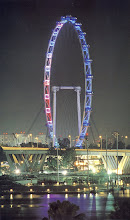
Sir Isaac Newton, (4 January 1643 – 31 March 1727) was an English physicist, mathematician, astronomer, natural philosopher, alchemist, and theologian and one of the most influential men in human history.

Plato (Greek:"broad")(428/427 BC – 348/347 BC), was a Classical Greek philosopher, mathematician, writer of philosophical dialogues, and founder of the Academy in Athens, the first institution of higher learning in the Western world. Along with his mentor, Socrates, and his student, Aristotle, Plato helped to lay the foundations of natural philosophy, science, and Western philosophy. Plato was originally a student of Socrates, and was as much influenced by his thinking as by what he saw as his teacher's unjust death.

Abraham Lincoln (February 12, 1809 – April 15, 1865) was the 16th President of the United States. He successfully led the country through its greatest internal crisis, the American Civil War, preserving the Union and ending slavery. As the war was drawing to a close, Lincoln became the first American president to be assassinated. Before his election in 1860 as the first Republican president, Lincoln had been a country lawyer, an Illinois state legislator, a member of the United States House of Representatives, and twice an unsuccessful candidate for election to the U.S. Senate.

Sir Winston Leonard Spencer-Churchill,(30 November 1874 – 24 January 1965) was a British politician known chiefly for his leadership of the United Kingdom during World War II. He served as Prime Minister of the United Kingdom from 1940 to 1945 and again from 1951 to 1955. A noted statesman and orator, Churchill was also an officer in the British Army, a historian, a Nobel Prize-winning writer, and an artist.

Sun Yat-sen 孫中山 (12 November 1866 or 24 November 1870 – 12 March 1925) was a Chinese revolutionary and political leader often referred to as the Father of Modern China. Sun played an instrumental role in overthrowing the Qing Dynasty in 1911. He was the first provisional president when the Republic of China (ROC) was founded in 1912 and later co-founded the Kuomintang (KMT) where he served as its first leader. Sun was a uniting figure in post-Imperial China, and remains unique among 20th-century Chinese politicians for being widely revered in both mainland China and Taiwan.

Dante Alighieri, (May/June1265 – September 14,1321) was a Florentine poet of the Middle Ages. His central work, the Divina Commedia (originally called Commedia and later called Divina ("divine") by Boccaccio), is often considered the greatest literary work composed in the Italian language and a masterpiece of world literature.

Dalí was a skilled draftsman, best known for the striking and bizarre images in his surrealist work. His painterly skills are often attributed to the influence of Renaissance masters.His best-known work, The Persistence of Memory, was completed in 1931. Dalí's expansive artistic repertoire includes film, sculpture, and photography, in collaboration with a range of artists in a variety of media.

Chopin, ( 1 March 1810[1] – 17 October 1849) was a Polish composer and virtuoso pianist. He was one of the great masters of Romantic music.
You can find all these bronze sculptures inside Parkview Square.
































.jpg)

.jpg)

.jpg)











No comments:
Post a Comment